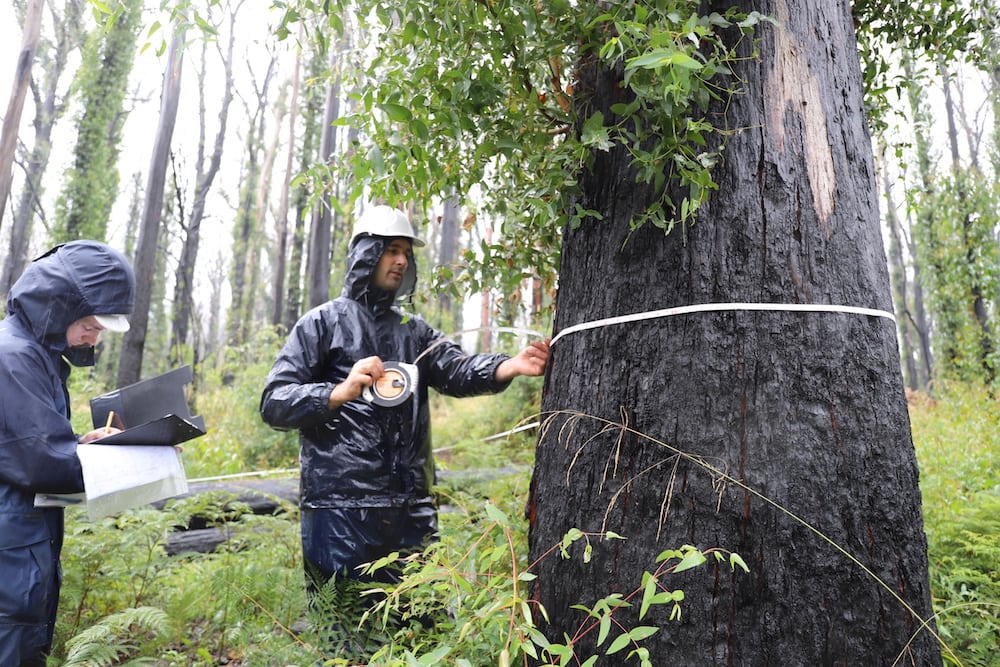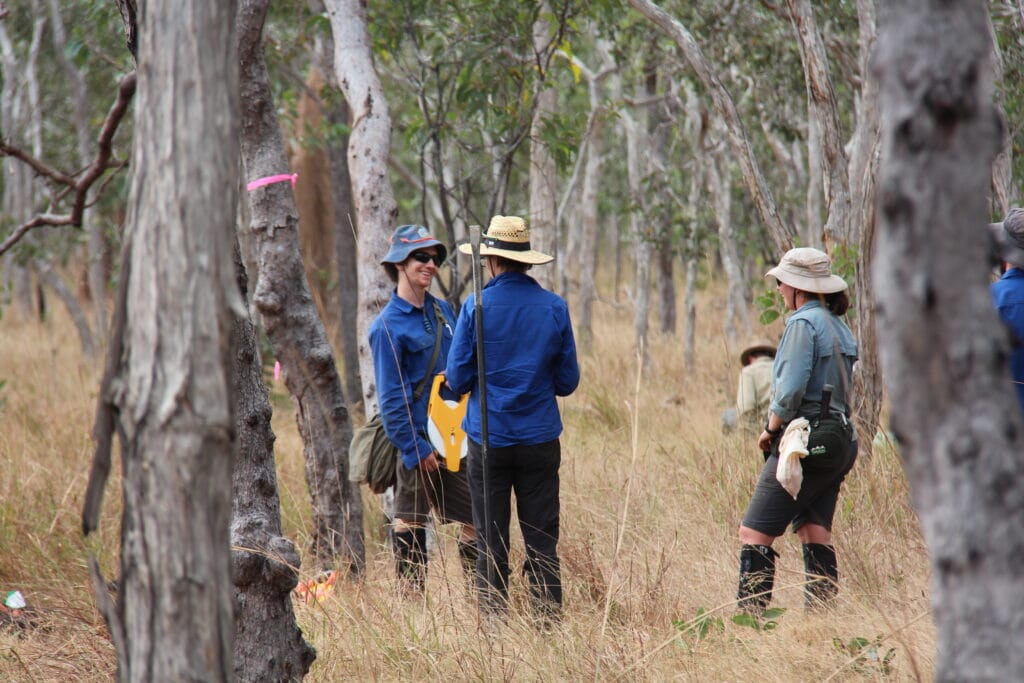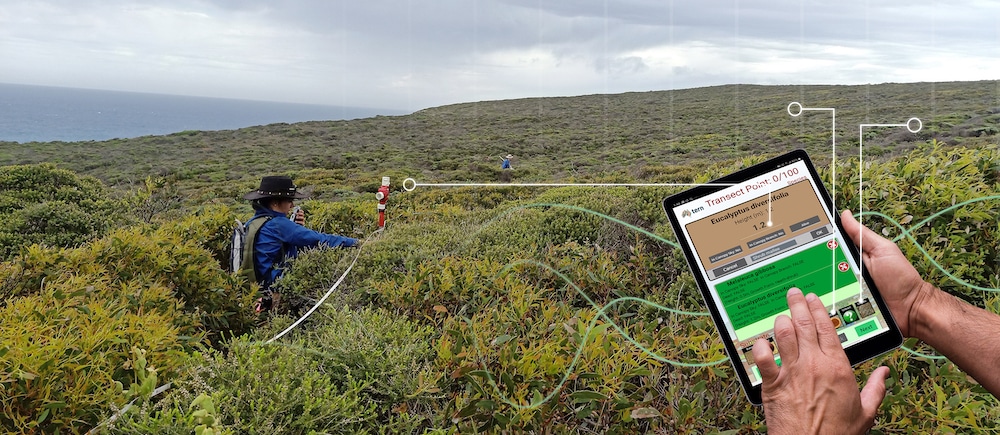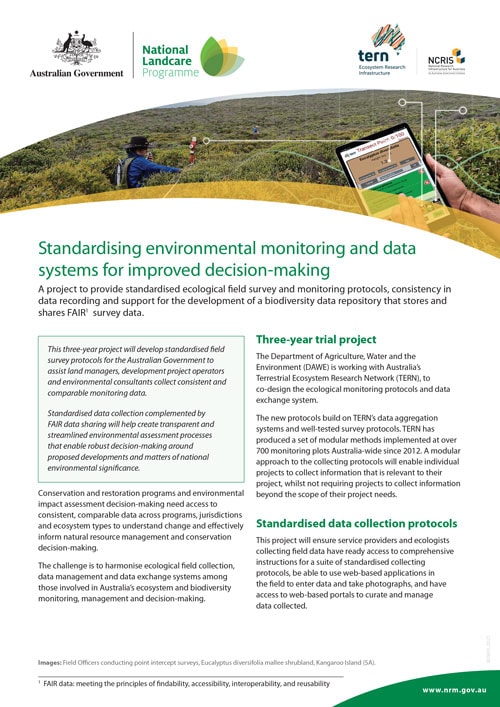The Department of Agriculture, Water and the Environment and TERN are working on a project to standardise both environmental monitoring and data systems for improved decision-making.
Standardised field survey protocols will assist land managers, development project operators and environmental consultants collect consistent and comparable monitoring data. In parallel, a standardised data exchange system will support better access and reuse of environmental monitoring and surveillance projects.
Australian governments, industry, organisations and communities are heavily investing in conservation and restoration programs to improve the condition of Australia’s ecosystems and biodiversity.
A challenge for these programs is collecting consistent, comparable data across programs, jurisdictions and ecosystem types to understand change and effectively inform natural resource management and conservation decision-making.
Three-year trial project
A new three-year project between TERN and the Australian Government Department of Agriculture, Water and the Environment (DAWE) will develop standardised field survey protocols to assist land managers, development proponents and environmental consultants collect consistent and comparable monitoring data.
It will also deliver a data exchange system and data management standards.
Standardised data collection protocols
The new, co-designed, standardised monitoring protocols build on TERN’s AusPlots Rangelands Survey Protocol and include a set of modular methods produced and implemented by TERN across over 700 monitoring plots Australia-wide since 2012.
A modular approach to the collecting protocols will enable individual projects to collect information that is relevant to their project, whilst not requiring projects to collect information beyond the scope of their project needs.
The new protocols will be used by DAWE’s Natural Resource Management (NRM) programs, in particular the Regional Land Partnerships (RLP) program, administered by the Monitoring, Reporting, Evaluation and Improvement (MERI) section.
RLP is a major component of Australia’s National Landcare Program and there are currently 210 ecological and agricultural projects across Australia, representing $450 million of funding.
MERI’s program delivery teams will engage with communities and RLP service providers across Australia to deliver scientifically robust NRM activities using the new standardised methods.

The new, co-designed, standardised monitoring protocols build on TERN’s AusPlots Rangelands Survey Protocol and include a set of modular methods produced and implemented by TERN across over 700 monitoring plots Australia-wide since 2012.
Streamlined data curation and management
The project will also develop data management and exchange standards for the Digital Environmental Assessment Program (DEAP) Biodiversity Data Repository Project that is implementing a nationally federated repository to store and share environmental data between proponents, regulators and the community.
The repository will store a large amount of environmental survey information collected through the State, Territory and Commonwealth environmental assessment processes.
The new data exchange system and standards will enable these data to be Findable, Accessible, Interoperable and Reusable (FAIR), supporting better access to, and re-use of, the data for multiple purposes, including research, development application assessments and policy-making.
TERN’s collaboration with DAWE will lead to a more streamlined, consistent, automated and robust system, ranging from project design, field-base monitoring, data access and management, and analysis of the effectiveness of impact assessments and NRM outcomes.
In February, TERN successfully completed two stakeholder workshops related, respectively, to the proposed survey protocols and data export standards to seek input from representatives of government at State/Territory and Commonwealth levels and those from not for profits, CSIRO, etc. Additionally, the Commonwealth has established the National Biodiversity Data Governance Committee to share governance and decision-making around the national biodiversity data standards, frameworks, approaches, etc
2023 update
For more information on the standardised ecological protocols TERN are developing for the Australian Government Department of Climate Change, Energy, the Environment and Water, visit









